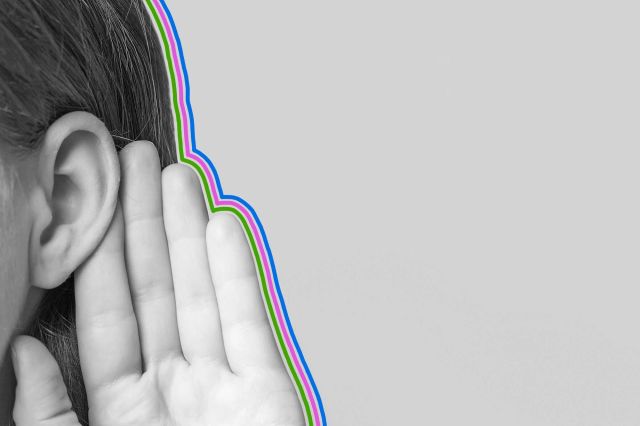
Ears Provide Our Sense of Balance
Within the ear are three semicircular canals filled with fluid. They lie at different angles, and each one monitors when we move our heads in a specific direction. Together, they send information about body position to the brain, which then sends it on to our eyes and muscles. That’s how we keep our balance. All together, this network is called the vestibular system.
Motion sickness arises from a mismatch in signals coming from our eyes and ears. When you’re in a ship’s cabin, for example, your inner ear picks up on rolling motions and sends one set of signals to your brain. Your eyes see motion, too, but not to the same degree. As a result, you might become dizzy or nauseated.

Ears Are Full of Delicate Hairs
On average, we’re born with about 16,000 tiny sensory receptors, called hair cells, in a hollow spiral-shaped bone located in the inner ear and called the cochlea. These hair cells allow our brains to register sounds. They’re delicate and can be easily damaged to the point where they break and don’t grow back. However, up to half of those cells can be damaged or destroyed before changes in your hearing show up on a hearing test.

Ears Respond to Changes in Air Pressure
The air around us has weight. It presses against everything it touches, as gravity pulls it down. When we go deep into the water, or high up in a plane, or even just into the mountains, that pressure changes dramatically.
Small tubes on each side of our faces, called Eustachian tubes, respond to changes in pressure. They connect our ears to the back of our throats. Normally, they’re closed, but when we yawn, chew, or swallow, they open. They also open when the air pressure in the environment changes. This equalizes the pressure on the two sides of the eardrum, a thin tissue that vibrates in response to sound waves. If the pressure becomes unequal, the drum could tear, causing hearing loss.
More Interesting Reads

Everyday Noise Can Damage Ears
About a quarter of American adults aged 20 to 69 suffer from hearing loss linked to noise. Loud sounds can hurt hair cells, which means the bad effects continue long after the noise stops.
According to the CDC, noise above 70 decibels for a prolonged period can start to damage hearing. That level of noise can be produced by washing machines, dishwashers, city traffic (from inside the car), lawnmowers, and more. Loud clubs or bars can produce noise around 105 to 110 decibels, which can cause hearing loss in less than five minutes. A dog’s loud barking in the ear can cause hearing loss after two minutes.

Ear Wax Is Good
Everybody has earwax, which keeps the ears clean and moisturized. It traps and prevents dust, bacteria, and anything else that gets into your ear from irritating the delicate skin inside. If you try to pry it out with a cotton swab, you’ll just stimulate your ear to make more wax.
However, wax buildups can occur. If you wear hearing aids, they may be stimulating your ears to produce too much wax. Some people just tend to produce too much wax naturally, and it can harden and block sound. Hardened earwax can also give you an earache, aggravate tinnitus, and make your ears feel too full. If you have those symptoms, try using earwax drops available in drugstores, or asking an ear, nose, and throat doctor to clean your ears.

Your Ears Don’t Sleep
When we’re asleep, our ears stay awake. They’re on the job, taking in possible threats while our eyes are shut. Our brains are also on the job, judging which information is important.
It’s work — which is why noisy bedrooms are bad for our health. Noise doesn’t have to wake you up to affect your sleep. It doesn’t even have to be loud. In one study, the murmur of hospital equipment showed a measurable impact in encephalographic measurements of brain activity in sleeping healthy adult volunteers. Their ears heard the noise and their brains measured mild alarm.











